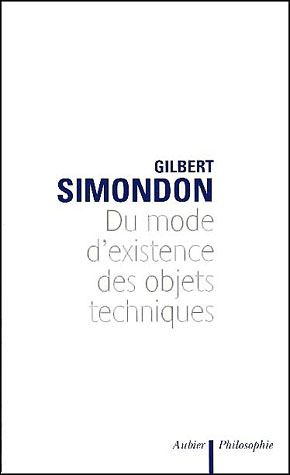Iain Thomson: Heidegger on Ontotheology. Technology and the Politics of Education (2005)
Filed under book | Tags: · critique, essentialism, hermeneutics, national socialism, nihilism, ontology, phenomenology, philosophy, philosophy of technology, technology

Heidegger is now widely recognized as one of the most influential and controversial philosophers of the twentieth century, yet much of his later philosophy remains shrouded in confusion and controversy. Restoring Heidegger’s understanding of metaphysics as ‘ontotheology’ to its rightful place at the center of his later thought, this book demonstrates the depth and significance of his controversial critique of technology, his appalling misadventure with Nazism, his prescient critique of the university, and his important philosophical suggestions for the future of higher education. It will be required reading for those seeking to understand the relationship between Heidegger’s philosophy and National Socialism, as well as the continuing relevance of his work.
• Examines the direct connection between Heidegger’s philosophy and his decision to join the National Socialist party in 1933 • Provides a clear reconstruction and defense of Heidegger’s later philosophy • Bridges the gap between continental and analytic philosophy
Publisher Cambridge University Press, 2005
ISBN 052161659X, 9780521616591
202 pages
PDF (updated on 2013-6-3)
Comment (1)Gilbert Simondon: On the Mode of Existence of Technical Objects (1958–) [FR, EN, ES]
Filed under thesis | Tags: · individuation, philosophy, philosophy of technology, technical object, technics, technology

“The purpose of this study is to attempt to stimulate awareness of the significance of technical objects. Culture has become a system of defense designed to safeguard man from technics. This is the result of the assumption that technical objects contain no human reality. We should like to show that culture fails to take into account that in technical reality there is a human reality, and that, if it is fully to play its role, culture must come to terms with technical entities as part of its body of knowledge and values. Recognition of the modes of existence of technical objects must be the result of philosophic consideration; what philosophy has to achieve in this respect is analogous to what the abolition of slavery achieved in affirming the worth of the individual human being.
The opposition established between the cultural and the technical and between man and machine is wrong and has no foundation. What underlies it is mere ignorance or resentment. It uses a mask of facile humanism to blind us to a reality that is full of human striving and rich in natural forces. This reality is the world of technical objects, the mediators between man and nature.” (from the Introduction)
French edition
Preface by John Hart
Afterword by Yves Deforge
Publisher Aubier, Paris, 1958, 1969, 1989
ISBN 2700718518
English edition, Part I
Translated by Ninian Mellamphy
With a preface by John Hart
Publisher University of Western Ontario, June 1980
98 pages
Commentary (EN)
Du mode d’existence des objets techniques (French, 1958/1969, added on 2014-4-21)
On the Mode of Existence of Technical Objects, Part I (English, trans. Ninian Mellamphy, 1980, added on 2014-4-21). Different version (updated on 2012-8-23).
Du mode d’existence des objets techniques (French, 1958/1989, no OCR, updated on 2014-4-21)
El modo de existencia de los objetos técnicos (Spanish, trans. Margarita Martinez and Pablo Rodriguez, 2007, added on 2014-4-21)
Martin Heidegger: The Question Concerning Technology, and Other Essays (1977)
Filed under book | Tags: · philosophy, philosophy of technology, technology

“For Martin Heidegger broadly, the question of being formed the essence of his philosophical inquiry. In The Question Concerning Technology (Die Frage nach der Technik), Heidegger sustains this inquiry, but turns to the particular phenomenon of technology, seeking to derive the essence of technology and humanity’s role of being with it. Heidegger originally published the text in 1954, in Vorträge und Aufsätze.
The Question Concerning Technology was originally named The Framework and first presented on December 1, 1949, in Bremen. It was at this time presented as the second of four lectures, collectively called ‘Insight into what is’. The other lectures were titled ‘The Thing’, ‘The Danger’, and ‘The Turning’.” (from Wikipedia)
Translated and with an Introduction by William Lovitt
Publisher Garland Publishing, New York & London, 1977
ISBN 0061319694, 9780061319693
182 pages
PDF (updated on 2013-4-8)
Comment (0)
